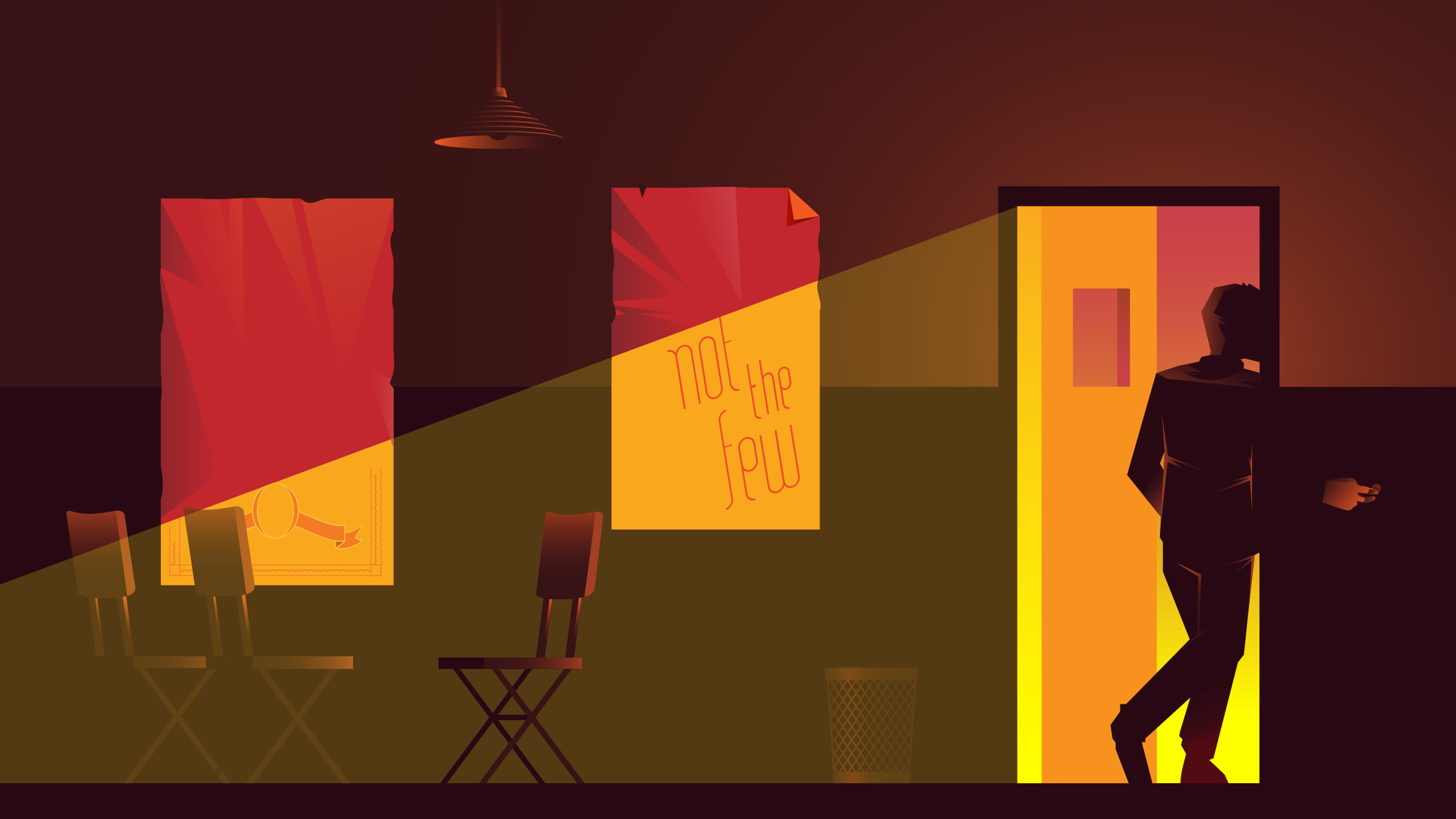
Bad New Times
Edition #1. August 2020.
Contents.
Editorials
-
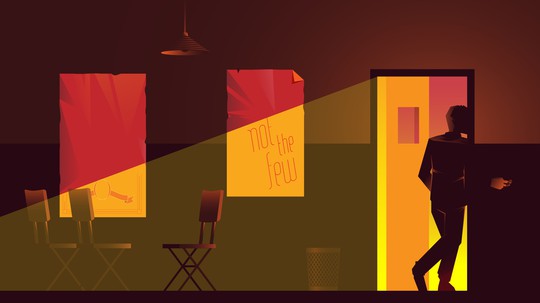
Introducing Bad New Times
What are 'bad new times'? What do they mean for New Socialist?
Read more... -
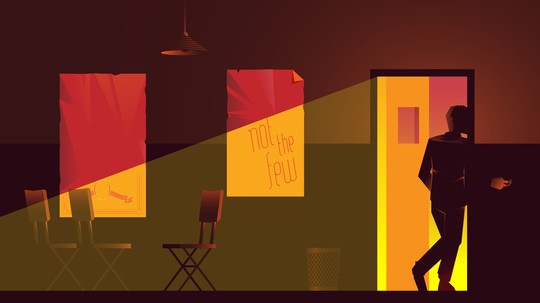
Editors' Letter
Keeping our comrades up to date with New Socialist.
Read more...
What Is Johnsonism?
-

Johnsonism, the Capitalist State, and Coronavirus
Johnsonism’s response to coronavirus aims to reconfigure state-capital relations, both in guaranteeing private sector activity, and in extending the commodification of social reproduction.
Read more... -
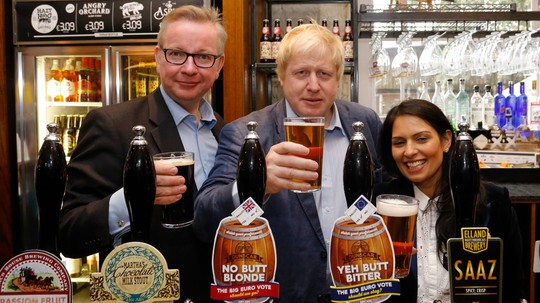
Fuck Business: Johnsonism, Hegemony and the Popular Classes
No election can be won without significant support from within the popular classes. Johnsonism represents the hegemony of the most reactionary fractions of capital because of their capacity to command this support.
Read more... -
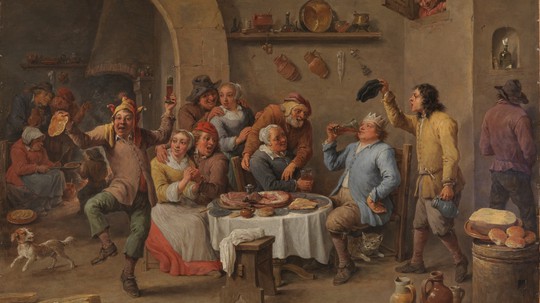
What is Johnson?/What is Johnsonism?
Boris Johnson enthusiastically embraces a style of politics of a pre-democratic age, and repurposes it for an increasingly post-democratic one.
Read more... -
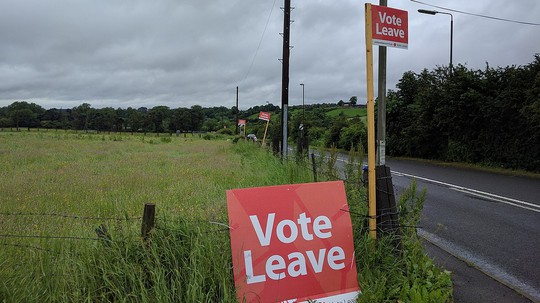
Johnsonism, Vote Leave and the Construction of an Enemy
Johnsonism has created its own national populist electoral coalition. It now aims to maintain this through the “levelling up” agenda.
Read more... -

Discussing Johnsonism
What can we learn from Johnson’s spell as Mayor of London? What are the ruling class strategies of the Johnson project? How does it stand in an international context?
Read more...
Essays
-

Left Economics from Below? Defending the Programme after Corbyn
Only a participatory socialist approach can make good on the potential of the Corbyn-McDonnell economic programme.
Read more... -
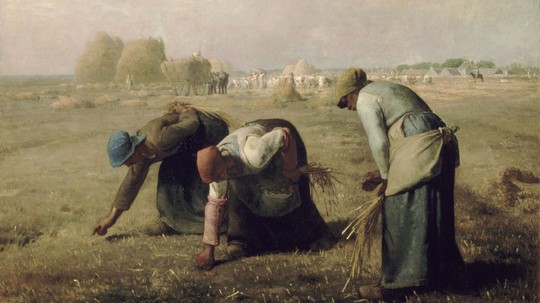
Unskilled Work?
Making claims for better pay or greater respect through skill is dangerous. Celebrating people’s aptitude for work that exploits them is a misplaced form of solidarity.
Read more... -
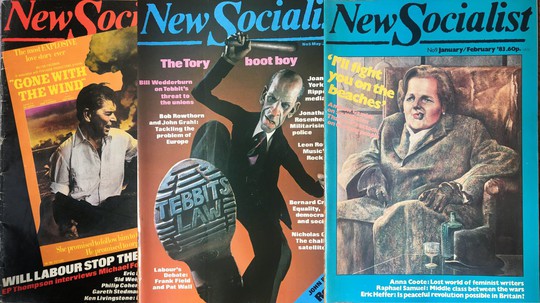
The First New Socialist
The original New Socialist aimed “to renew democratic socialism” by engineering a broad political coalition. How successful was it?
Read more... -

Introducing Raymond Williams
In the 1980s Raymond Williams was the thinker of the relation between the conjunctural and the organic. This grounded his position on electoral and political strategy.
Read more... -

Socialists and Coalitionists
The advocates of coalition politics, whether big (anti-Tory) or small (labourist), have abandoned the struggle to transform belief and opinion. Opposing both coalitions is necessary for socialist renewal.
Read more... -
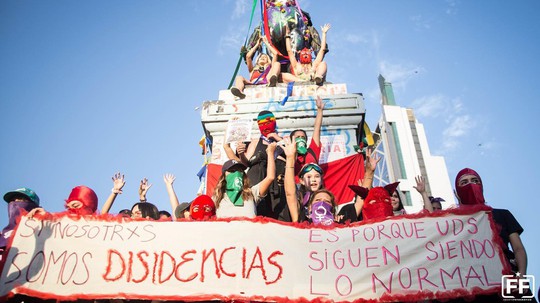
Stalemate in Chile: Reflections on the Ongoing Revolt
Chile wants a revolution but a mixture of the effects of the Coronavirus crisis and an inequality of force has, so far, blocked it.
Read more... -

Another Nightingale: Coronavirus, Plague and the Colonial Violence of British Neglect
The disproportionate destruction of racialised communities through Covid-19 is the continuation of the colonial violence of which Florence Nightingale was a part.
Read more... -
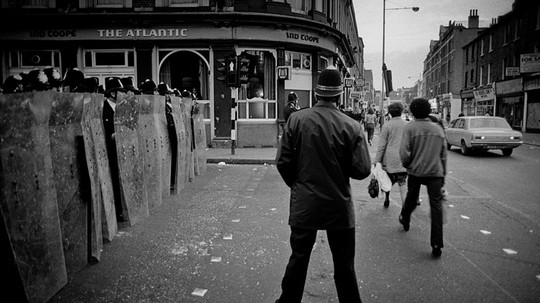
Riot Redactions, Colonial Reverberations
Punitive and militaristic policing has long been a fundamental part of the British state, grounded in notions of the unpoliceability of colonial subjects.
Read more... -
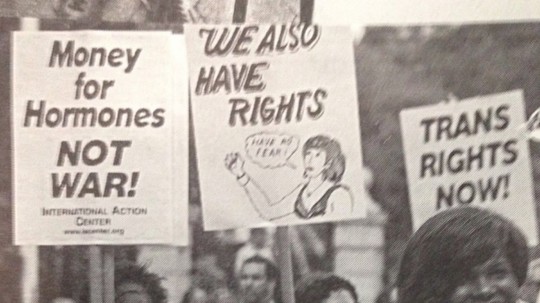
Bad New Times: Transfeminism and solidarity for the new decade
Socialist transfeminist proposals offer a challenge to the ever-increasing backlash against trans people.
Read more... -
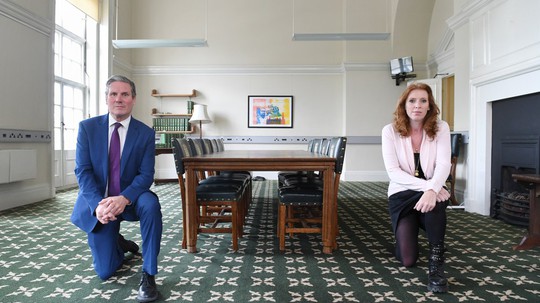
No Space for Us? Race and the Labour Leadership
The Labour leadership contest and Starmer’s early leadership represent a return to normality for Labour – a normality in which the votes of Black and Brown people are taken for granted.
Read more... -
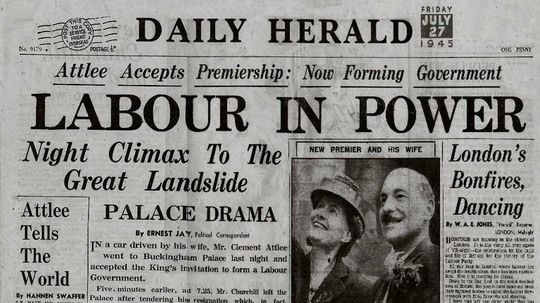
The Guilty Men Thesis and Labour’s Route to Power
Labour victory in 2025 will require a break with the common sense of the post-1979 era. We need a new Guilty Men thesis to enable that rupture.
Read more... -

The continuation of policing by other means? Extending abolitionist critiques to the mental health system
If we are to think about alternatives to policing and prisons, we must also think critically about the mental health system’s own relationships to structures of institutional racism, violence, and the state.
Read more... -

Country, City, Quarantine
What do horseshoe crabs, COVID-19, Stonehenge, ticks, and Kirstie Allsopp have in common? They all have a part to play in the story of how capital produces nature.
Read more... -

‘Come 2 the park and play with us!’: Prince, acid communism, and sociality
In expressing joy in the social, creating lived utopias beyond the family, and destabilising normality, Prince is a key example and practitioner of acid communism.
Read more... -

The Coronavirus Crisis Response in the EU
The Coronavirus crisis has seen a return to the familiar EU deadlocks. This can best be understood through how the EU represents and organises (and disorganises) class fractions.
Read more...
Columns
-
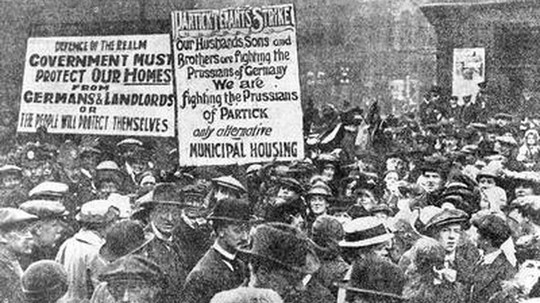
Organising Strategy after Lockdown
In her first organising column, Kate Flood takes us through the bread and butter of working class unity: building the union!
Read more... -
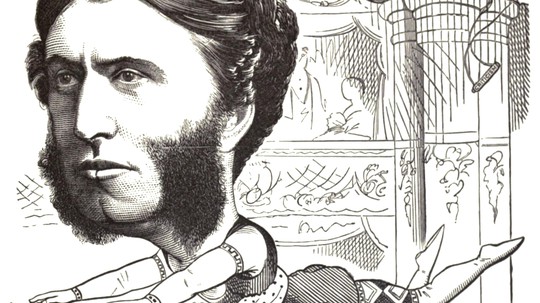
Crisis and Opportunity: Coronavirus and Education
The capitalist state is attempting to use the Covid-19 crisis in schools to push narrow, traditionalist pedagogy and enrich their friends. Educators must articulate radical new futures.
Read more...
Activists' Inquiry
-

Activist Responses to Coronavirus
We asked for responses on radical organising in response to Coronavirus. Next, we're asking for responses on London-centricity.
Read more...
Culture Is Ordinary
-

The Culture Is Ordinary Interview: Billy Lunn
Jude Wanga discusses class, growing up in Hertfordshire, Petrarch, breaking America, Britney and more with the lead singer of the Subways.
Read more... -
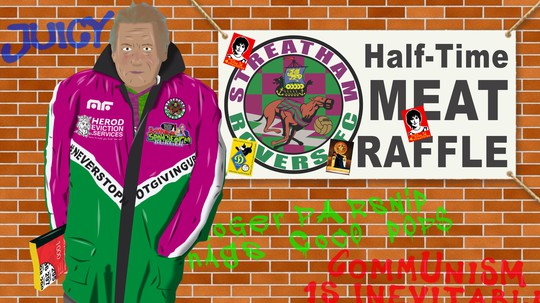
A23 Travelogue, Part One: Roger Parsnip
Searching for homo-authenticus, discussing immigration, Orwell, and gentrification.
Read more... -

Other People's Songs: Bob Dylan's Never Ending Tour, and evolution through derivation
The Coronavirus outbreak may have sidelined Dylan as a touring musician, but it has also seen the release of his first new work as a songwriter since 2012, “Murder Most Foul”.
Read more... -

How Tearing Down Art Built Britain
Iconoclasm has played a crucial role British history (and in the struggle against the British and its history). Colston is only the latest instance.
Read more... -

Black Lives Matter and Football's Racism Problem
Pressure from Black footballers as workers forced a significant symbolic shift in the acknowledgment of racism. However, there remains much to do in a wider context that is becoming ever more embittered.
Read more... -

Don't Blame Footballers for the Government's Failures
The macro failings of the state, the shortcomings of institutional society and the bigotries of the populace crystallise in the way footballers have been treated during the pandemic.
Read more...
Books
-

Introducing Zheng Chaolin
Tom and josie consider the relationship between Zheng Chaolin’s life, his politics, and his poetry.
Read more... -

A Revolution without Breaks or Interruptions
A poem by Zheng Chaolin, with extended notes by translator and compiler Gregor Benton.
Read more... -

The Waking of the Insects
Zheng Chaolin's poem of 1984, taken from the Verso collection 'Poets of the Chinese Revolution', with notes by Gregor Benton.
Read more... -

Abolish Silicon Valley: Tom Gann interviews Wendy Liu
Wendy Liu discusses her political journey from ardent Silicon Valley Kool Aid drinker to scathing critic of the entire industry (and capitalism), as documented in her new book 'Abolish Silicon Valley'.
Read more... -
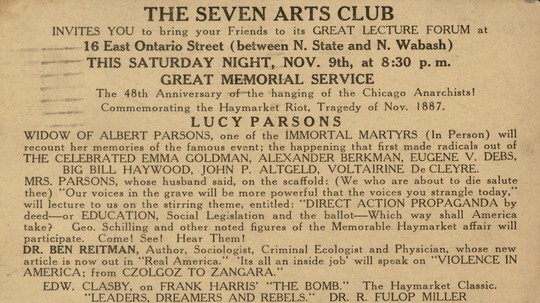
Always a Spark of Hope. A Review of Burn it Down: Feminist Manifestos for the Revolution
'Burn it Down' documents the fundamental optimism of feminist movements; the belief that things can change.
Read more... -

Resisting Surveillance Capitalism
Socialists should be worried about surveillance capitalism not because it is an unprecedented economic form, but because it exploits and alienates in ways similar to 19th century industrial capitalism.
Read more... -

Dissident Friendships
How can we think about political relations between women? Can intimacy be a radical act? A recent book aims to examine these questions.
Read more... -
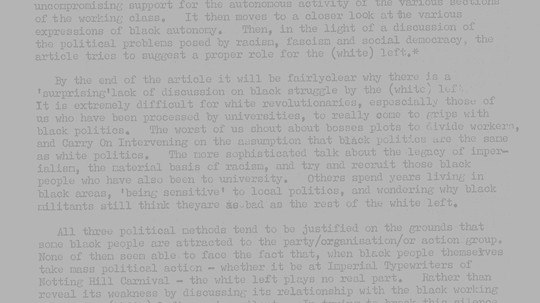
Popular Feminisms
A review of Lola Olufemi’s 'Feminism, Interrupted' and Alison Phipps’s 'Me, Not You'.
Read more... -
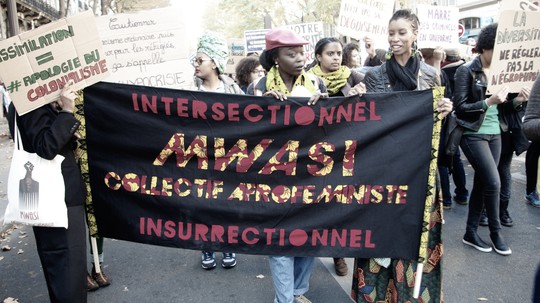
Those Who Fight For Us Without Us Are Against Us: Afrofeminist Activism in France
An archive of French Afrofeminist thought and organising, a tradition which dates back to the beginning of the twentieth century.
Read more... -
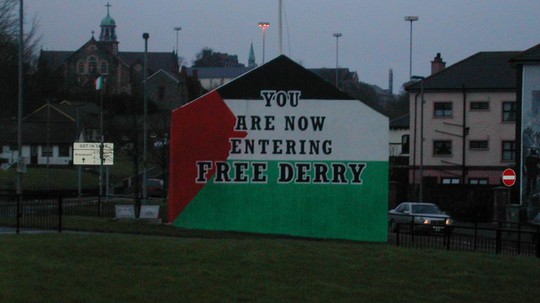
One Man's Terrorist: Daniel Finn and Daniel Baker in conversation.
Throughout the conflict, the IRA’s military capacity and significant, but not decisive, support in working class Catholic communities gave it a power of negative veto but little chance of outright victory.
Read more...